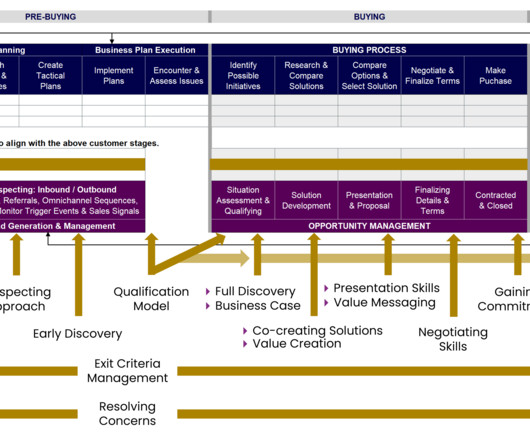Value Selling Strategies: What it is and Why it Matters
Arpedio
APRIL 30, 2024
What is Value Selling? Value selling is a sales approach that can revolutionize the way you sell. Unlike traditional methods, value selling focuses on delivering unique value to customers and aligning their needs with your product or service. So, why does value selling matter?

















Let's personalize your content